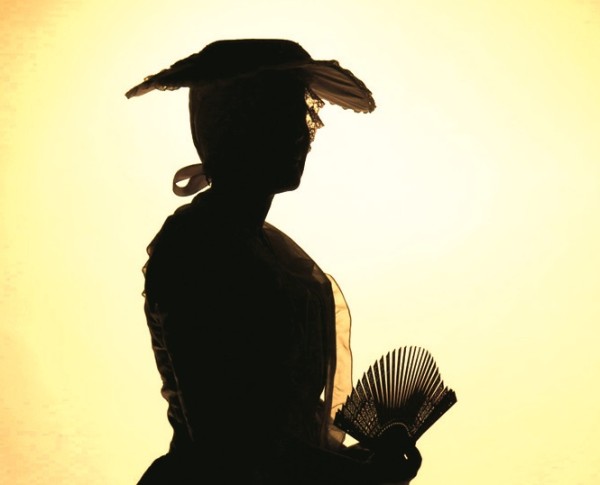
A dashing young soldier comes to town, flush with victory in battle.
A young woman succumbs to his charms. He leaves. She has his child.
It’s a plot that seems to be borrowed from a romance novel, but it happened in Williamsburg in the months after the Yorktown victory that signaled the end of the Revolutionary War.
“When I read it I thought about how that happens all the time in war when occupying armies come to other countries and young men meet young women,” says Colonial Williamsburg trainer Rose McAphee, who researched and presented the tale for staff during winter training.
“Their lives are on the line. They don’t know if they’re going to see tomorrow. And they have relationships, and sometimes illegitimate children are born. That happens in every war, everywhere.”
Our heroine, Rachel Warrington, was about 12 years old when she and her sister Camilla were orphaned. A wealthy uncle, Dr. Riddell, and his wife Suzannah took them into their home in Yorktown.
Rachel’s teen years coincided with the war. We don’t know much about what notice she took of politics, but Dr. Riddell apparently had loyalist sympathies. Nonetheless, when French troops came to town, there was a friendly spirit.
Rachel Warrington lived in the Thomas Everard House in Williamsburg, just down the street from the Governor’s Palace.
The doctor died in 1779, and two years later his widow, Suzannah, took her adoptive daughters and some 15 slaves to live in Williamsburg. They settled into what is now known as the Thomas Everard House on Palace Green, steps from where Virginia’s governors lived until the capital moved to Richmond in 1780.
Rachel was the subject of gossipy letters between two young women in Rachel’s social circle, Betsey Ambler and Mildred Smith. Betsey noted that Rachel’s older sister Camilla was the fairer one, “pretty enough to have been a belle.” Rachel, on the other hand, had “no pretensions to beauty or wit.”
Nonetheless, Mildred wrote that Rachel “has more bewitching talents for seducing a guileless heart than any human being I have ever known.”
In November 1781 many of the French troops that had helped to secure the American victory in Yorktown established winter quarters in Williamsburg. The town was the setting for extended celebrations.
“There are endless balls,” wrote Baron Ludwig von Closen in his journal. “The women love dancing with as much passion as the men hunting and horse-racing, and sometimes cock-fights too.”
Soon, Rachel and her sister, and quite possibly the widow Suzannah as well enjoyed the attention of French officers during what turned out to be a very mild winter.
They weren’t alone. “One could not be more hospitable than are the inhabitants of Williamsburg to all the army officers,” wrote von Closen. “They receive them very cordially in their homes and do all in their power to provide entertainment for them (according to the custom of the country, however).”
In other words, the town was not necessarily up to cosmopolitan French standards.
Two regular visitors to Rachel’s home were Donatien Marie Joseph de Vimeur, son of the French hero Rochambeau, and Louis Francois Bertrand Dupont d’Aubevoye, compte de Lauberdiere, who was Rochambeau’s nephew.
Lauberdiere described his time at the house in his journal:
Lodging with the Viconte de Rochambeau my friend, we took great advantage of the resources which this country offered and of the company of a widow named Madame Ridle, who has two charming nieces, Miss Rachel and Camilla Warrington. As the chanson says, “let us make love, let us make war”—these two occupations are filled with attraction. In fact, we tried to combine the one with the other, and our desires were fulfilled.
In November 1782, some five months after the French forces departed, Rachel gave birth to a son, Lewis. The father may have been either of the French officers, although most circumstantial evidence points to Lauberdiere.
To a woman of her society it was a shameful event, and it was her fault. Betsey and Mildred were undoubtedly joined by others in treating young Rachel as a cautionary tale for a young woman who did not fulfill the expectations of her station.
Rachel eventually got married to a middling man named Richard Brown. Perhaps she lost her opportunity to marry someone from the gentry because she had become a single mother. Her sister Camilla married a judge, a position that would seem to be more appropriate for their station.
But Rachel’s experience shows that social conventions did not necessarily square with the reality.
“We talk a lot about the gentry station and about how the gentry is the example for how polite society is supposed to behave.” McAphee said. “And the further you go down—middling, tradesmen, lower sorts- the less refined and cultured you are. You don’t have as much access to reading, you don’t get taught your courtesies, so you pick those things up from watching other people. And the gentry took that pretty seriously: ‘To those whom much is given, much is expected.’ They set the standard.
“But people are people and we don’t always do what we’re supposed to do, especially when we’re young. She knew what she was supposed to do.”
Rachel Warrington’s experience was a cautionary tale in her time many of her peers, but today it is a human story that gives greater dimension to our understanding of women, war and social status in a revolutionary time.
McAphee pieced together details of the story from academic research and assorted historical records.
“My father was in Vietnam,” says McAphee. I think back to all the children who were left in Vietnam. Many of them wanted to and have since come to America to find their fathers. Some of the fathers acknowledged them; some of the fathers did not. The same thing could be happening in Iraq and Afghanistan.”
Rachel lived until about 1812. At that point her son Lewis was a commander in the American navy. He earned a gold medal from Congress for capturing a British warship during the War of 1812 and later served briefly as interim secretary of the navy.
Rose McAphee values the story because we can still identify with Rachel’s circumstances today. “It’s a part of war. That was my connection to it. This happens more often than people want to acknowledge. And very often it’s the woman who bears the brunt of the shame, the brunt of the responsibility.”
“You’ve got this handsome man from France, he’s got money, he’s a decorated soldier, and he’s treating me nice, and I’m in love. It’s a story about love, really, and that’s a universal story.”


Rod Fairlee says
Guess I will need to edit my family crest S a result of reading about Rachael Warrington. I am a descendant on my maternal side. I had some knowledge of other Warrington’s of the Revolution. In this lineage a Warrington served well and married four times. He fathered child at 94. I think his first name was Thomas. I would think that would make a good read..
Some years ago his portrait hung in a Philadelphia library for sale at $20,000. I do not know if it sold. ..maybe another Warr
ington story? It seemingly appears that a paternal grandfather Fairlee and maternal grandfather served together as part of the Washington LifeGuards later to be joined in marriage generations later from which
I descend.
Mike Lebsock says
Sincere thanks and appreciation to Rose and Bill Sullivan for bringing this so very real and genuinely human story to light. I believe it shows a side of the Revolution that we tend to overlook. The victory won, everyone goes back to their lives… a Constitution is written (after the failed Articles of Confederation) and America moves on… but this story reminds us all that there are, and always have been, so many stories that never reach the history books. Thoroughly enjoyed this other view of America’s past.
Dewitt Yingling says
Well done. This wonderful story adds so much to my appreciation of the people of Williamsburg and to the history of the Everard House. Kudos to Ms. McAphee on recognizing the significance of this event and its enlightenment of the human experience of the times.
Will we be hearing more from Ms. McAphee based upon her research?
I hope so.